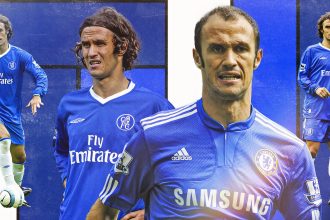The Red Devils have the third-highest net spend in the Premier League this summer despite the co-owner insisting they are strapped for cash
"At INEOS, we run a lean organisation," said Sir Jim Ratcliffe in March. "As my mother said, you look after the pennies, the pounds look after themselves."
The Manchester United co-owner was trying to use relatable terms to justifying his swingeing cuts to the club he had taken over the previous year. Ratcliffe was effectively likening the reductions he had made to buying home label items from the supermarket over luxury brands.
Over the summer, however, United have not exactly been looking after the pennies. In June, they signed Matheus Cunha for £62.5 million ($83m), and in July they added Bryan Mbeumo for an initial £65m ($86.5m), which could rise to £71m ($94.5m). And they are not done yet; United are hoping to add Benjamin Sesko to their squad, a deal which will cost at least £69m ($92m) if they are able to beat Newcastle to the Slovenian's signature, taking their total net spend to £205m on three attackers.
Club captain Bruno Fernandes, meanwhile, wants them to sign even more players, describing his team's overall attitude as "lazy" and claiming there must be more competition for places. Given United ended last season 15th in the Premier League, it is easy to see why Fernandes wants a more competitive squad, but how exactly can Ratcliffe plead poverty and justify his brutal costs with one hand while throwing cash around with the other?
Getty ImagesThird-biggest spenders
Although United have only bought two players, they are ranked fifth in the Premier League for total transfer expenditure this summer, behind only last season's top-four finishers: Liverpool, Chelsea, Arsenal and Manchester City. But they are ranked third, behind Arsenal and Liverpool, when it comes to net spend, the amount of money spent on new players minus the amount brought in on sales.
While Liverpool brought in £115m ($153m) of revenue by selling Luis Diaz, Jarell Quansah, Caoimhín Kelleher and Trent Alexander-Arnold, among others, and Chelsea have banked £131m ($174m) by moving on the likes of Noni Madueke and Joao Felix, United have not sold any players despite effectively admitting that they were ready to get rid of Marcus Rashford, Alejandro Garnacho, Tyrell Malacia, Antony and Jadon Sancho.
Rashford is the only player to have left, joining Barcelona on loan for no fee, although there is an option for the Blaugrana to buy him permanently for £26m ($34.5m) next summer if the move goes well.
AdvertisementGetty ImagesFunding the splurge
Rashford's departure, however, has still helped United finance their transfer activity. Barca committed to paying all the England international's wages, saving United around £17m ($22.5m).
United have also been aided by sell-on fees included in the terms of departure for three players who left long ago. The club negotiated a 15-20 percent sell-on clause when they sold Anthony Elanga to Nottingham Forest for £14m in 2023, and that has paid off handsomely after the Swedish winger's £55m ($73m) move to Newcastle, which earned United between £6m and £8m.
The club inserted a similar clause in the deal which saw Alvaro Carreras join Benfica for €6m in 2024, and so while United might have felt a pang of regret at letting Carreras leave for so little when they learned Real Madrid were about to sign him for €50m (£43.5m/$58m), the sell-on clause did at least soften the blow, pocketing them around €9m.
United also received a windfall of €2.4m for Maxi Oyedele joining Strasbourg from Legia Warsaw after negotiating a 40% sell-on clause when he left for Poland last summer. So without doing any business themselves, United have earned up to £18m ($24m) to commit to this summer's transfer activity.
Getty Images SportPaying in instalments
Saving Rashford's salary, combined with the sell-on clauses, has effectively paid for Mbeumo and Cunha. That is because United have paid for both players in instalments, spreading the costs of payments over several years. The practice of amortisation is widespread among Premier League clubs and something United have been doing for many years.
Ratcliffe complained about it in his round of interviews in March, explaining: "This summer we will ‘buy’ Antony, Sancho, Casemiro, [Lisandro] Martínez, [Rasmus] Hojlund and [Andre] Onana, and they’re all about 17 million quid each. Because that’s what is outstanding. If we buy nobody else, we’re buying those players."
But despite the co-owner's complaints, United have continued to spread the payment of their latest transfers this summer, and that has allowed them to do deals that many would not think possible due to their financial position. United are paying Cunha's £62.5m fee in three instalments after Wolves rejected their request to do so in five. That means that they only needed to come up with £20.8m this summer, with the last payment due by the summer of 2027.
United are paying for the initial £65m for Mbeumo in four instalments, meaning they only had to stump up £16.25m initially. So two players that cost a total of £130m were gettable for just £37m up front. And rather than take on more debt or having to sell a big name to afford them, they have been able to pay for them by loaning out Rashford – who Amorim had refused to pick since last December – and thanks to contract negotiations for academy graduates made years before.
AFPAnother resource is available
United also have more wiggle room in the market due to making salary savings from the January loans of Rashford, Antony and Malacia, and for Sancho spending last season on loan at Chelsea. The club also point to the reduction of 'wider club costs', referring to the cutbacks Ratcliffe has overseen. That is why they can afford to battle Newcastle for Sesko and why they could even make the extra signings Fernandes has called for.
To get those deals done, however, they may have to dip into the rolling credit facility they have used previously to finance transfers. United made a £50m ($66.5m) payment earlier this year which means they can borrow up to £140m ($186m) more from the facility. The downside of the credit facility is that it adds to their already significant debt pile, which stands at £713.2m ($949m) and which is subject to a variable interest rate.
The bulk of the debt pre-dates Ratcliffe's arrival and stems from the Glazer's leveraged buyout in 2005, when the American family controversially plunged the Red Devils into debt as they paid only a small portion of the £790m to purchase the club with their own money.






